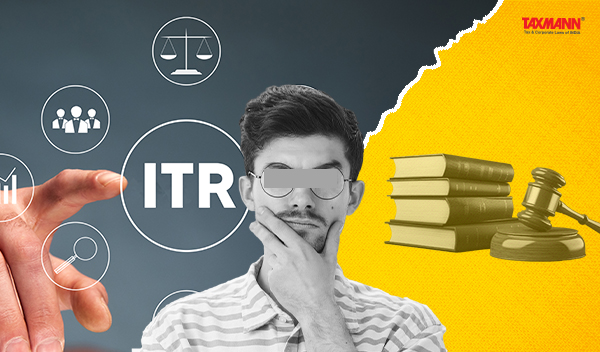[Opinion] Is Income Tax Return Filing Utility Above the Income Tax Law?
- Blog|News|Income Tax|
- 2 Min Read
- By Taxmann
- |
- Last Updated on 18 July, 2024

Mayank Mohanka – [2024] 164 taxmann.com 370 (Article)
Our hon’ble FM Smt. Nirmala Sitharaman has given all of us a reason to smile, in her budget speech presentation of the Union Budget 2023, when she announced, “Currently, those with income up to Rs.5 lakh do not pay any income tax in both old and new tax regimes. I propose to increase the rebate limit to Rs.7 lakh in the new tax regime. Thus, persons in the new tax regime, with income up to Rs.7 lakh will not have to pay any tax.”
The Explanatory Memorandum to the Finance Bill 2023 provided as under:
“IV. Rebate under section 87A
Under the provisions of section 87A of the Act, an assessee, being an individual resident in India, having a total income not exceeding Rs 5 lakh, is provided a rebate of 100 per cent of the amount of income-tax payable i.e., an individual having income till Rs 5 lakh is not required to pay any income-tax. From the assessment year 2024-25 onwards, an assessee, being an individual resident in India whose income is chargeable to tax under the proposed sub-section (1A) of section 115BAC, shall now be entitled to a rebate of 100 per cent of the amount of income-tax payable on a total income not exceeding Rs 7 lakh.”
Amendment in Section 87A of the Income Tax Act by the Finance Act 2023
Before the amendment by the Finance Act 2023, section 87A read as under,
“Rebate of income-tax in case of certain individuals.
87A. An assessee, being an individual resident in India, whose total income does not exceed five hundred thousand rupees, shall be entitled to a deduction, from the amount of income-tax (as computed before allowing the deductions under this Chapter) on his total income with which he is chargeable for any assessment year, of an amount equal to hundred per cent of such income-tax or an amount of twelve thousand and five hundred rupees, whichever is less.
The Finance Act, 2023 has inserted a Proviso in section 87A of the Income Tax Act, w.e.f. 1.4.2024, namely:
“Provided that where the total income of the assessee is chargeable to tax under sub-section (1A) of section 115BAC, and the total income—
(a) does not exceed seven hundred thousand rupees, the assessee shall be entitled to a deduction from the amount of income-tax (as computed before allowing for the deductions under this Chapter) on his total income with which he is chargeable for any assessment year, of an amount equal to one hundred per cent of such income-tax or an amount of twenty-five thousand rupees, whichever is less;
(b) exceeds seven hundred thousand rupees and the income-tax payable on such total income exceeds the amount by which the total income is in excess of seven hundred thousand rupees, the assessee shall be entitled to a deduction from the amount of income-tax (as computed before allowing the deductions under this Chapter) on his total income, of an amount equal to the amount by which the income-tax payable on such total income is in excess of the amount by which the total income exceeds seven hundred thousand rupees.”
Click Here To Read The Full Article
Disclaimer: The content/information published on the website is only for general information of the user and shall not be construed as legal advice. While the Taxmann has exercised reasonable efforts to ensure the veracity of information/content published, Taxmann shall be under no liability in any manner whatsoever for incorrect information, if any.

Taxmann Publications has a dedicated in-house Research & Editorial Team. This team consists of a team of Chartered Accountants, Company Secretaries, and Lawyers. This team works under the guidance and supervision of editor-in-chief Mr Rakesh Bhargava.
The Research and Editorial Team is responsible for developing reliable and accurate content for the readers. The team follows the six-sigma approach to achieve the benchmark of zero error in its publications and research platforms. The team ensures that the following publication guidelines are thoroughly followed while developing the content:
- The statutory material is obtained only from the authorized and reliable sources
- All the latest developments in the judicial and legislative fields are covered
- Prepare the analytical write-ups on current, controversial, and important issues to help the readers to understand the concept and its implications
- Every content published by Taxmann is complete, accurate and lucid
- All evidence-based statements are supported with proper reference to Section, Circular No., Notification No. or citations
- The golden rules of grammar, style and consistency are thoroughly followed
- Font and size that’s easy to read and remain consistent across all imprint and digital publications are applied



 CA | CS | CMA
CA | CS | CMA
